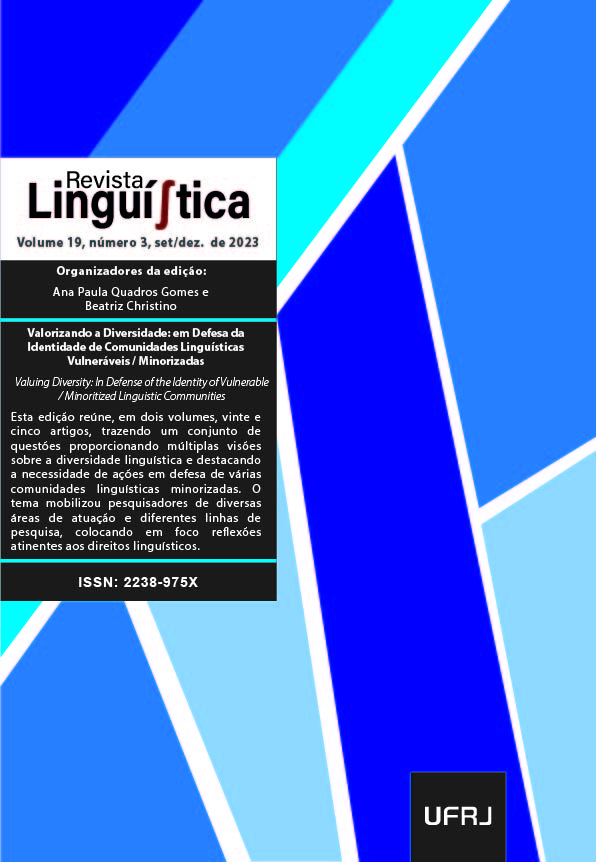“O pove unide jamais será vencide”: metapragmatics of linguistic-discursive violence on X
DOI:
https://doi.org/10.31513/linguistica.2023.v19n3a60389Keywords:
Violência linguístico-discursiva, linguagem não-binária, ironia, TwitterAbstract
Considering that LGBTQIA+ communities witness recurring delegitimization strategies regarding the use of non-binary language in online-mediated interactions, which not only affect writing per se but also threaten their existence, we aim to analyze how irony undermines the use of non-binary language and constructs metapragmatics of linguistic-discursive violence on X (formerly Twitter). Theoretically, we engage in a debate concerning linguistic ideologies, metapragmatics, linguistic-discursive proxemics, and impoliteness in formulation a framework for the study of linguistic-discursive violence within the Interactional Sociolinguistics and Pragmatics domains, interrelating this theoretical set to discussions in the scope of non-binary language. Methodologically, we present the procedures adopted in this research, guided by a netnographic, critical and qualitative framework, involving the selection of an interaction: a thread and the comments (in response to the thread) addressing the relationship between the Enem essay test and the use of non-binary language. Analytically, we demonstrated that the interactants used irony not only to delegitimize the use of non-binary language in the construction of metapragmatics of linguistic-discursive violence (interactants A, B, and E) but also to legitimize such use (interactants C and D). Finally, we reiterate the importance of developing a metapragmatic awareness to diagnose instances of violence and endorse non-binary lexical and grammatical choices that align with the identity constitutions of equally non-binary people.
Downloads
Published
Issue
Section
License
Copyright (c) 2024 Revista Linguí∫tica

This work is licensed under a Creative Commons Attribution-NonCommercial 4.0 International License.
Authors who publish in the Revista Linguí∫tica agree with the following terms:
The authors maintain their rights, ceding to the journal the right to first publication of the article, simultaneously submitted to a Creative Commons license permitting the sharing with third-parties of published content as long as it mentions the author and its first publication in the Revista Linguí∫tica.
Authors may enter into additional agreements for the non-exclusive distribution of their published work (for example, posting in online institutional or non-profit repositories, or book chapters) so long as they acknowledge its initial publication in the Revista Linguí∫tica.

The journal Revista Linguí∫tica is published by the Post-Graduate program in Linguistics of UFRJ and employs a Creative Commons - Attribution-NonCommercial 4.0 International (CC-BY-NC).









